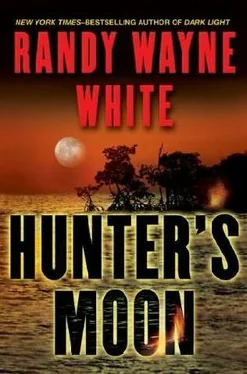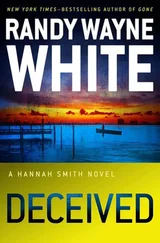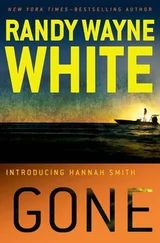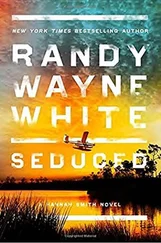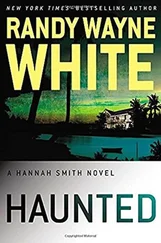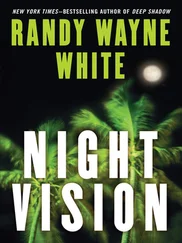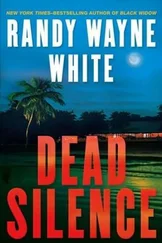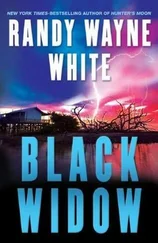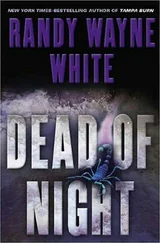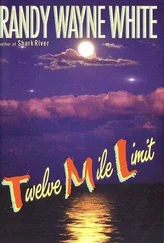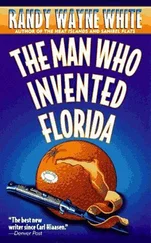Randy White - Hunter's moon
Здесь есть возможность читать онлайн «Randy White - Hunter's moon» весь текст электронной книги совершенно бесплатно (целиком полную версию без сокращений). В некоторых случаях можно слушать аудио, скачать через торрент в формате fb2 и присутствует краткое содержание. Жанр: Триллер, на английском языке. Описание произведения, (предисловие) а так же отзывы посетителей доступны на портале библиотеки ЛибКат.
- Название:Hunter's moon
- Автор:
- Жанр:
- Год:неизвестен
- ISBN:нет данных
- Рейтинг книги:4 / 5. Голосов: 1
-
Избранное:Добавить в избранное
- Отзывы:
-
Ваша оценка:
- 80
- 1
- 2
- 3
- 4
- 5
Hunter's moon: краткое содержание, описание и аннотация
Предлагаем к чтению аннотацию, описание, краткое содержание или предисловие (зависит от того, что написал сам автор книги «Hunter's moon»). Если вы не нашли необходимую информацию о книге — напишите в комментариях, мы постараемся отыскать её.
Hunter's moon — читать онлайн бесплатно полную книгу (весь текст) целиком
Ниже представлен текст книги, разбитый по страницам. Система сохранения места последней прочитанной страницы, позволяет с удобством читать онлайн бесплатно книгу «Hunter's moon», без необходимости каждый раз заново искать на чём Вы остановились. Поставьте закладку, и сможете в любой момент перейти на страницу, на которой закончили чтение.
Интервал:
Закладка:
Wilson said, “No, it’s not enough. There are all kinds of ways to destroy men and there’s more at stake than you understand. Did you open the envelope I gave you?”
I nodded.
“Then follow your orders, Dr. Ford.”
“I don’t know if I can.”
“You can, and you will.”
As he started up the trail, I said, “Kal… are you sure?”
“Absolutely certain.” Wilson took a last glance at the corpse of the man who had killed his wife, then caught my eye. He came as close as he could to smiling. “The shark and the barracuda,” he said. “You make excellent bait.”
27
At 1 p.m., I was sitting high in a tree, far from where Lourdes had died but close enough to hear the master of ceremonies announce, “Ladies and gentlemen, please welcome former president of the United States, Mr. Kal Wilson. He will speak in the absence of Ambassador Donna Riggs Johnson, who is unable to attend.”
The military band played the first bars of “Hail to the Chief” as Wilson strode across the stage toward the podium. Through the sniperscope, his face filled the lens. He paused only to salute another unexpected guest, General Juan Rivera. Rivera was wearing a white formal uniform, medals and ribbons clustered on his chest.
Wilson pointedly did not stop to shake hands with the four men seated to the right of the podium. Among them was Thomas Farrish, who controlled the canal through his company IS amp;P, and his mentor, Altif Halibi, the Islamicist cleric who had issued the fatwa against Wilson and offered the million-dollar reward.
The two men wore similar expressions on their faces as Wilson stepped to the microphone-uneasiness and contempt.
In the months that followed, I would listen to the former president’s speech many times, as did people around the world. Shana Waters, broadcasting live, got it all-so did New York. Via satellite. Digitally.
Wilson attached the microphone to his lapel, then spoke for less than five minutes. I expected him to talk about U.S. sanctions against Panama or instigators of the Apocalypse. Instead, he surprised everyone on stage, beginning: “I am not here in an official capacity. When I contacted the White House this morning, I was asked not to speak. Ambassador Johnson has also asked me not to speak. I am going to speak, anyway. But the words and the opinions are mine alone.”
As Wilson waited for his interpreter to translate, I used the telescopic sights to scan the stage, then the audience. Some listened, but gangs of protesters continued to chant slogans in the distance. From my post, forty feet above the ground, high on Ancon Hill, I could see other groups carrying signs, marching, near Balboa High School, and then Albrook Air Base just beyond, where Wilson had once been stationed.
The man really was revisiting places that had been important to him and his wife.
As Wilson resumed speaking, I returned my focus to the stage. I was using a tree branch to support the sniper rifle and I fixed the crosshairs on Wilson’s chest. It was a strange and sickening sensation. Unreal. Like swimming from the light of a coral reef over a drop-off where the ocean plummets into the darkness of abyss.
On the card I had burned Wilson had written: The presidency is sacred, and I will not risk disgracing the office because I have chosen to take a risk. If anyone attempts physical interference or restraint while I am on stage, shoot me. Shoot to kill.
Those were my orders. They came from a man who, I was aware, dreaded the humiliation of the disease consuming him but who also understood the power of symbols. If he allowed himself to be humiliated, the presidency would be debased.
Days ago. Vue had told me there must be wind and light when a great man dies, so the sky can take him. On this tropical afternoon in Panama, there were both.
I would carry out my orders.
As Wilson spoke, then waited for his interpreter, a rhythm emerged that was subtle, inviting. During each pause, I used the sniperscope to observe the reactions of the audience, the Panamanian security police scattered through the crowd, and a half dozen men stationed behind Thomas Farrish and the cleric Altif Halibi.
Bodyguards.
If there was trouble, it would begin with them.
The interest in Wilson’s words radiated gradually outward through several thousand people. One politician’s truth is another politician’s lie, but people recognize sincerity and they are attracted to it even when they don’t agree.
What Wilson said was dangerous. They recognized that, too.
“A few months ago, an invitation was delivered to me in the form of a fire that killed seven people, including my wife. I am here to respond, and also point out that you, too, received an invitation. It was delivered on a Tuesday in September, in New York. Since then, it has been delivered many times around the world.
“There could be no better place to address this issue than Panama. Panama is at the crossroads of the world and your people represent every religion and race. The same is true of all the Americas, from Canada to Brazil.
“That is precisely why they hate us. We are joined by geography and our differences. It does not matter that some of us pray to a God they claim as their own. They say we lack courage, resolve, and morality. They say we are mongrel nations and unclean. They will not tolerate our tolerance.
“So they send these invitations-but from the shadows. The shadows are where intolerance and hatred and cowardice always hide.”
For the first time, Wilson looked at Thomas Farrish and Altif Halibi sitting to his left. Farrish was dressed in a suit of white silk, the cleric was bearded and wore a turban and robes. Both sat stoically, refusing eye contact.
Wilson continued to look at them as he said, “Perhaps it would be good to explain who we really are and thereby remind ourselves exactly what our heritage demands of us.
“We are the sons and daughters of every race, all religions, joined between two oceans and by a passion for self-determination and freedom. We are not a perfect people. The inequities we suffer as neighbors, and inflict as neighbors, are many. But we do not hide in shadows.
“In us runs the blood of revolutionaries and explorers, of farmers, immigrants, and Aztec statesmen. In us runs the blood of train barons-and train robbers-and of individuals who, though chained in slave ships, refused to bow down as slaves.
“We are people who risked the gallows to create sanctuaries on earth that, for the first time, guaranteed religious freedom. In the years it took to build Panama’s Canal, Muslims, Christians, Hindus, and Jews lived and worked and prayed here, side by side, and continue to do so.
“Our numbers include women brave enough to demand equality, and who continue to fight against the sickening control some attempt to impose on them. Are we a collection of mongrels? Yes.
“The same was said of us in another invitation. It was issued from Berlin in 1939.
“If you believe we lack courage and resolve, it may be because you have banned so many history books. Allow me to enlighten you.
“We are the fifty thousand who took our convictions to earth at Gettysburg. We are the thousands of white crosses that rest where poppies grow at Flanders Field-South Americans, Central Americans, and North Americans, all died in that war.
“We are Simon Bolivar’s fearless charge against the Spanish, and a thousand Inca warriors, marching against the guns of Conquistadors. We are the Seventh Cavalry who perished at Little Bighorn. We are Apache warriors who refused to run and so stood awaiting death while chanting: ‘Your bullets stand no chance against our prayers.’
“We are not an easy people. We love a winner and despise a coward. Courage is an immigrant’s cornerstone, and our reverence for self-reliance has never been equaled nor will it ever be.”
Читать дальшеИнтервал:
Закладка:
Похожие книги на «Hunter's moon»
Представляем Вашему вниманию похожие книги на «Hunter's moon» списком для выбора. Мы отобрали схожую по названию и смыслу литературу в надежде предоставить читателям больше вариантов отыскать новые, интересные, ещё непрочитанные произведения.
Обсуждение, отзывы о книге «Hunter's moon» и просто собственные мнения читателей. Оставьте ваши комментарии, напишите, что Вы думаете о произведении, его смысле или главных героях. Укажите что конкретно понравилось, а что нет, и почему Вы так считаете.
